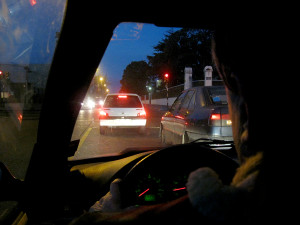It is the first Monday after daylight savings time. If you are like most people, you may have needed some more coffee to get through this morning and this afternoon. In a few days, our bodies make the adjustment to the loss of the hour but until then we are all at an increased risk of car crashes. Indeed, researchers looked at 21 years of car crash data and found the number of fatal car accidents on an average Monday is 78.2. On the Monday following “spring forward”, the average jumps to 83.5. So what can you do?
Let’s start with the obvious: go to be early tonight and for the next few days until you can feel your body adjust and you no longer feel like you need an IV supply of coffee to get through the day. Some of you may already be saying there is no way you can fall asleep early but there are tricks that can help. Avoid caffeine, sugar and alcohol. Wind down with a hot bath. Aromatherapy with lavender, chamomile, etc. can assist in relaxation. Make sure your sleeping environment is conducive to sleep including the temperature and darkness of the room. Avoid screen time before bed and try reading a book instead. Use a meditative program to help relax and unwind (there are some great programs on i-Tunes, Amazon music, etc.)
In the long run, this data shows us several things that most of us already know but tend to ignore. First, even small changes to our sleep pattern can leave us drowsy and mentally groggy. Second, drowsy driving is as dangerous as drunk driving. The National Sleep Foundation has found that being awake for 18 hours is the equivalent of a .50 BAC. Being awake for 24 hours is the equivalent of a 1.0 BAC. Third, too many of us were sleep-deprived even before we lost the hour yesterday. The Centers for Disease Control and Prevention have found that 1 in 3 adults do not get enough sleep on a regular basis. How do you know if you are one of those people? The American Academy of Sleep Medicine and the Sleep Research Society both recommend a minimum of 7 hours of sleep per night for anyone aged 18-60. Children need more. If you are not regularly getting 7 hours of sleep, you are almost assuredly sleep-deprived.
If you are driving and you notice any of the tell-tale signs of being drowsy (drifting in and out of your lane, trouble focusing, heavy eyelids, head bobbing, constant yawning), please take immediate action. If possible, get out of your car and take a quick walk or do some jumping jacks to get the blood flowing and perk yourself up. Get a cup of coffee. If another licensed driver is riding with you, ask them to take over for a while so you can take a break and perhaps take a cat nap to refresh yourself.
And, of course, if you or a loved one has been injured by a drowsy driver, give us a call. Our award-winning lawyers handle all accident cases on a contingency basis so we only get paid if we recover money for you. Unlike some lawyers, we never ask our clients to advance expenses or charge interest on expenses. We have recovered more than $175 million dollars for our clients and we are here to help you too. Give us a call at 615-742-4880 (Nashville) or 615-867-9900 (Murfreesboro) or 866-812-8787 (toll-free). Of, if you would rather call us, simply fill out this form and we will.
 Tennessee Injury Law Center
Tennessee Injury Law Center


